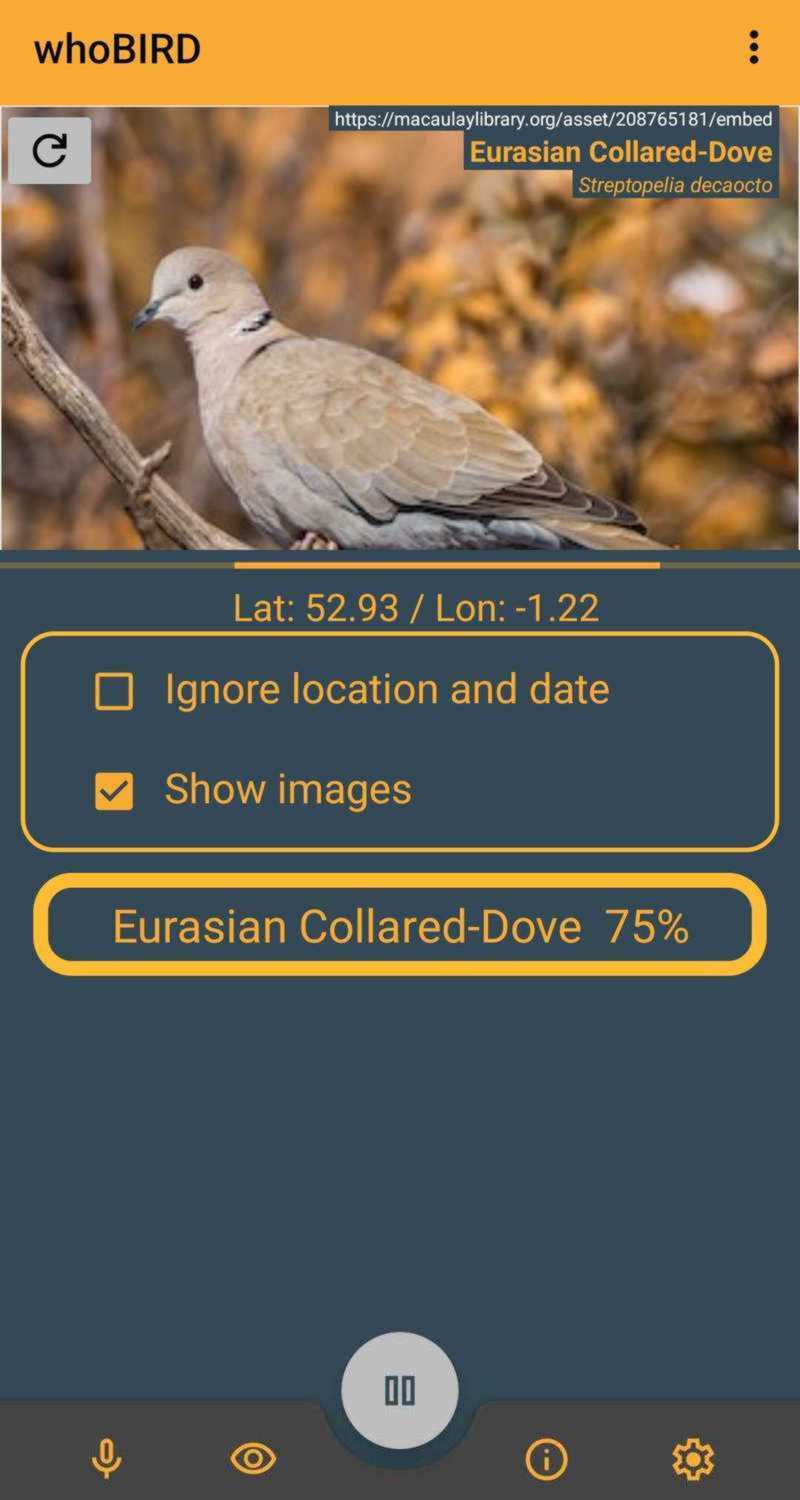WhoBIRD — Awesome Open Source
I recently learned something new about those tweety birds we hear in the tall trees all along our school run, cycling or walking past the golf course. Near the school end, lots of coal tits, a name with which I was barely familiar. Near our end, lots of wrens. I had an idea that wrens were rare and secretive and tiny, so it had not occurred to me they were responsible for that noisy cheerful chatter. Perhaps it's hard to spot one but they're loudly singing.
These I learnt last week helped by an app named “whoBIRD” which, as you may guess, listens for bird calls and displays the most likely matches. It's delightful to identify real birds, and surprisingly successful if they're not too far away.
It's also fun trying to imitate bird calls, and satisfyingly hard to get past's WhoBIRD's correct identification of “human whistle”.
My eye was drawn to WhoBIRD when I stumbled across it while browsing for another open-source app in F-Droid. It is a little volunteer/hobbyist app which matches the sound from the microphone against Cornell University's bird call data, displaying a name and a picture of the most likely match. That's all it does.
Another family member has been using an app named “Merlin”, I soon found out, so I tried it too. Merlin is Cornell's own app, using the same data source. By contrast with WhoBird, Merlin seems aimed at serious amateur birders for research data collection, professionally produced, multi-featured and slick — and on the other hand being a huge download and demanding sign-up into their club. (For a quick try-out I found that entering the fake email address “a@b.c” on every start suffices to access the sound identification feature with just names but no pictures or additional information.)
It's nice to have the choice, which Cornell University enabled by publishing their research results as Open Data in their BirdNET project so that others can re-use it in other ways. Birders and ornithologists interested in the sightings and soundings side of this should consider Merlin or the other BirdNET apps. Technologists and researchers on the data analysis side might like to study and modify whoBIRD. As a builder and tinkerer myself, I value open source software on principle. Already I am imagining how I or anyone could modify whoBIRD to do things like send a picture of each identification to my smart watch. Or send the identifications through my Matrix network to co-ordinate the listening among multiple devices left near open windows at home, with a separate display standing on the kitchen table.
#awesomeFOSS #freedomSoftware #degoogled
Follow/Feedback/Contact: RSS feed · Fedi follow this blog: @julian@wrily.foad.me.uk · matrix me · Fedi follow me · email me · julian.foad.me.uk Donate: via Liberapay All posts © Julian Foad and licensed CC-BY-ND except quotes, translations, or where stated otherwise
